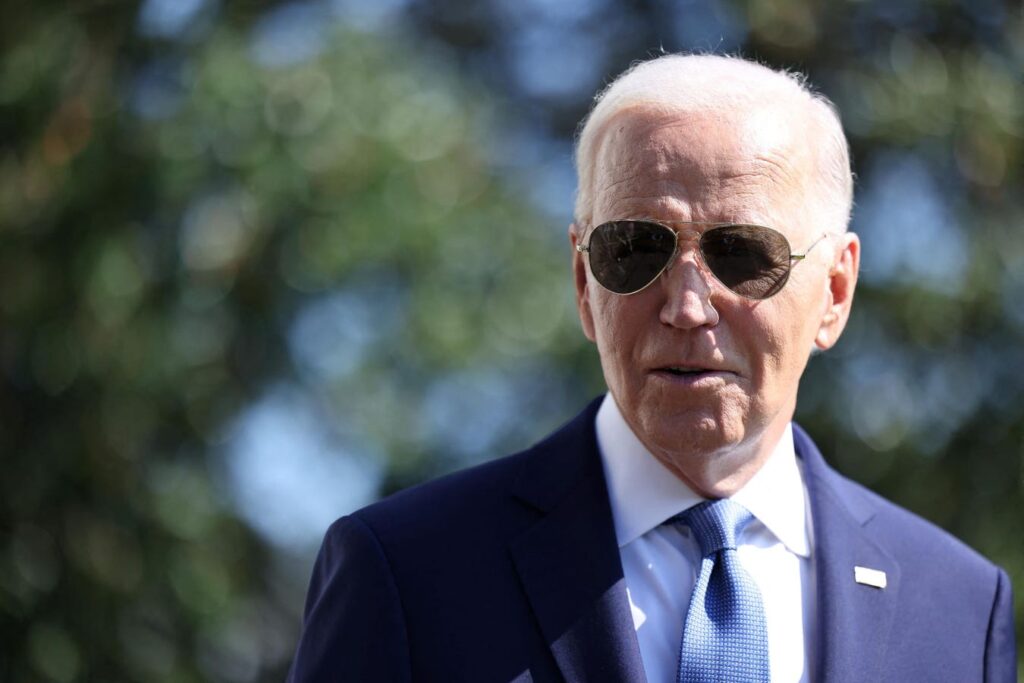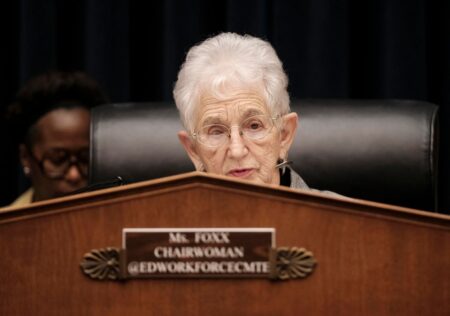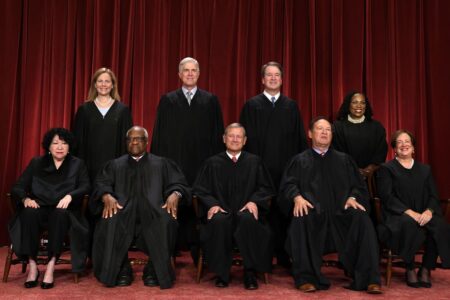President Joe Biden is set to unveil more student loan forgiveness relief for certain borrowers in the coming days. The announcement will come before he heads to Germany next week for an official visit.
While details are sparse, Fortune and Bloomberg are reporting that White House officials suggested the announcement will center on Public Service Loan Forgiveness. PSLF is a popular debt relief program for borrowers who commit to working in nonprofit or government jobs.
The anticipated announcement about more student debt relief comes on the heels of a chaotic week for student loan borrowers. Two key student loan relief initiatives ended, while a new mass loan forgiveness plan was subjected to a rollercoaster of court rulings.
Here’s the latest.
Biden Set To Announce New Student Loan Forgiveness Relief For Public Service Borrowers
White House officials told Fortune and Bloomberg that Biden intends on “expanding” student loan forgiveness for public workers.
Public Service Loan Forgiveness — popularly referred to as PSLF — can provide debt relief after a federal student loan borrower makes the equivalent of 10 years of qualifying payments. To meet program requirements, borrowers must comply with several eligibility rules, including working at least 30 hours per week or more as an employee of qualifying nonprofit or government organizations.
The program, created through bipartisan legislation in 2007, suffered from poor implementation and dismal approval rates for years. By 2020, only a few thousand borrowers had been approved, and the Education Department was reporting a 98% rejection rate. However, the Biden administration enacted a series of temporary waivers and regulatory updates designed to improve PSLF and make it easier for borrowers to qualify. As a result, close to a million borrowers have now been approved for student loan forgiveness under the program during the last three years, according to the department.
Biden Administration Had Previously Suggested PSLF Expansion For Early Childhood Workers
While the Biden administration has not provided specifics on the upcoming announcement, the Education Department indicated earlier this summer that it was initiating a regulatory development process to expand PSLF eligibility to include early childhood educators, even if they work in the for-profit entities.
“While many borrowers have received relief, under the current PSLF program rules, hundreds of thousands of ECE educators, many of whom operate small businesses, are excluded from the program” because they do not work for an employer that explicitly qualifies for PSLF, said the Education Department in its announcement in June. “The ECE workforce is among the lowest-paid categories of occupations in the country” and is comprised almost entirely of women, said the department.
Biden administration officials had suggested that nearly half a million ECE workers nationwide could benefit from a PSLF expansion that would allow them to pursue student loan forgiveness based on their jobs.
Several Key Biden Student Loan Forgiveness Programs Face Legal Hurdles
The upcoming announcement to expand student loan forgiveness comes against a backdrop of ongoing legal challenges over several other programs, which are increasingly tying the administration’s hands in providing student debt relief to borrowers.
In August, a federal appeals court issued a nationwide injunction blocking the new SAVE plan. SAVE is an income-driven repayment program that can provide borrowers with affordable payments, a waiver of excess interest accrual, and several routes to eventual student loan forgiveness. With SAVE blocked, the entire IDR processing system has been thrown into disarray, with loan forgiveness under several other IDR plans now also facing a key legal test.
Meanwhile, last week, a federal court blocked another mass student debt cancellation plan that the Biden administration had hoped to initiate this fall. That program, designed to replace the loan forgiveness initiative that the Supreme Court struck down in 2023, would provide several pathways to relief, including for those who have experienced runaway interest, and borrowers who first entered repayment at least 20 or 25 years ago. After the Biden administration scored a brief victory in a Georgia court, a different court in Missouri issued a nationwide injunction only hours later to block the program, even though the Education Department has not even finalized the rules for the initiative or begun implementing any relief.
Both legal challenges were brought by Republican-led states, which argue that the Biden administration is exceeding its legal authority in establishing these programs. The administration counters that Congress authorized both the SAVE plan and debt cancellation under longstanding provisions of the Higher Education Act.
Read the full article here











